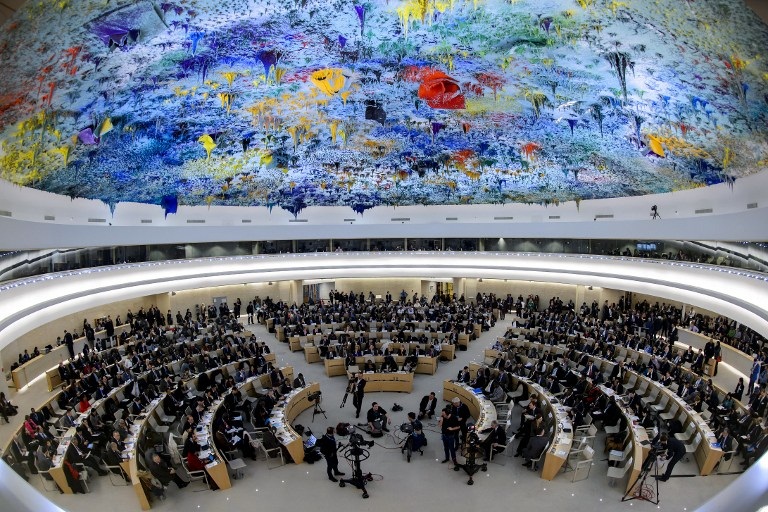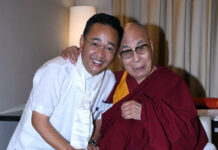
(TibetanReview.net, Jul20’19) – Five UN independent experts have questioned China’s use of its anti-separatism law to suppress freedom of expression, religion, assembly and association and the cultural rights of the Tibetan people as they presented their reports during the ongoing session of the UN Human Rights Council in Geneva. The context was China’s jailing in separate trials in Dec 2016 of nine Tibetans to jail terms ranging from five to 14 years for celebrating the Dalai Lama’s 80th birthday.
The 80th birthday of the Dalai Lama, Tibet’s exiled spiritual leader, was marked in 2015 on a grand scale by exile Tibetans as a year-long event but the celebrations were banned in Chinese ruled Tibet.
The nine Tibetans were sentenced by the Intermediate Peoples’ Court of Barkham (Chinese: Ma’erkang), the seat of the traditionally Tibetan prefecture of Ngaba (Aba) in what is now part of China’s Sichuan Province.
The UN’s Special Rapporteur in the field of cultural rights, the Special Rapporteur on the promotion and protection of the right to freedom of opinion and expression, the Special Rapporteur on the situation of human rights defenders, the Special Rapporteur on minority issues and the Special Rapporteur on freedom of religion or belief have asked China to provide detailed information on the nine Tibetans who had been unjustly imprisoned.
The experts have expressed deep “regret” over China’s response towards “what appears to be a cultural and religious expression by the nine Tibetans” and the “frequent application of article 103 (2) of the Chinese Criminal Law on “incitement to separatism” to suppress freedom of expression, religion, assembly and association and the cultural rights of the Tibetan minority”.
The experts have also raised in their joined communication to China serious concern in eight areas of criminal justice administration, including in the application of due process, detention conditions, and information about charges and place of detention to the family members of imprisoned Tibetans.
The nine included six Kirti Monastery monks, namely Drugdra (also known as Dukda or Drukdra), Lobsang Khedrup, Lobsang Gephel, Lodro, Tsultrim, and Akyakya. They were jailed for five to 14 years and their whereabouts remain uncertain or unknown. Two were women, namely Ta’re Kyi, serving eight years, and Bonkho Kyi (also known as Wonkho Kyi) about whom no information exists. Both their whereabouts remain unknown. Trotsik Tsultrim, a former monk of Trotsik monastery, is serving six years and his whereabouts too remain unknown.





